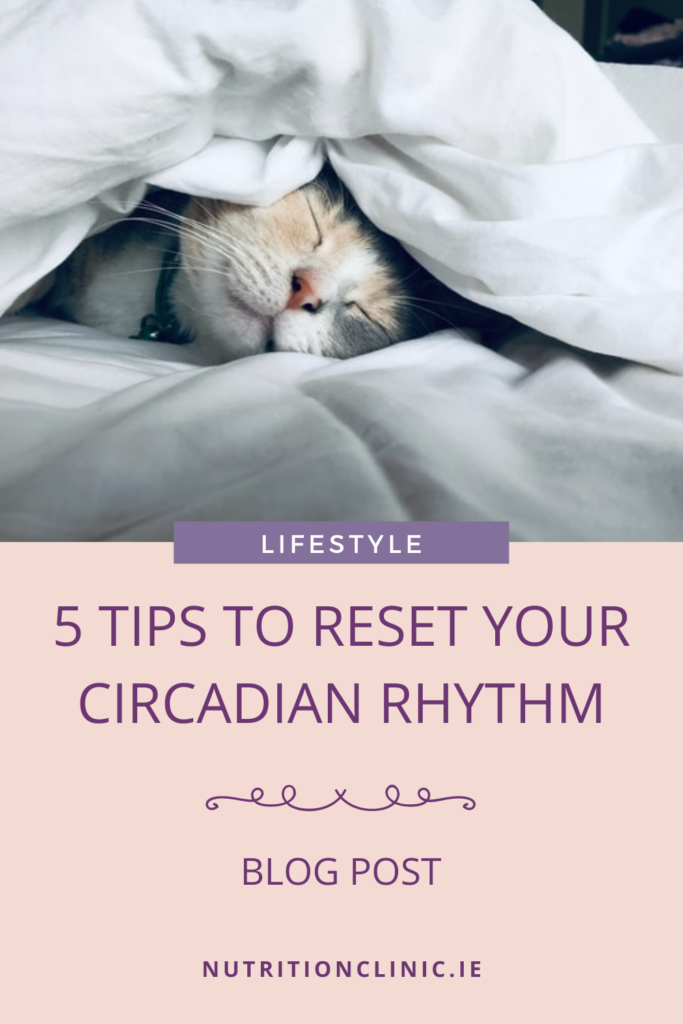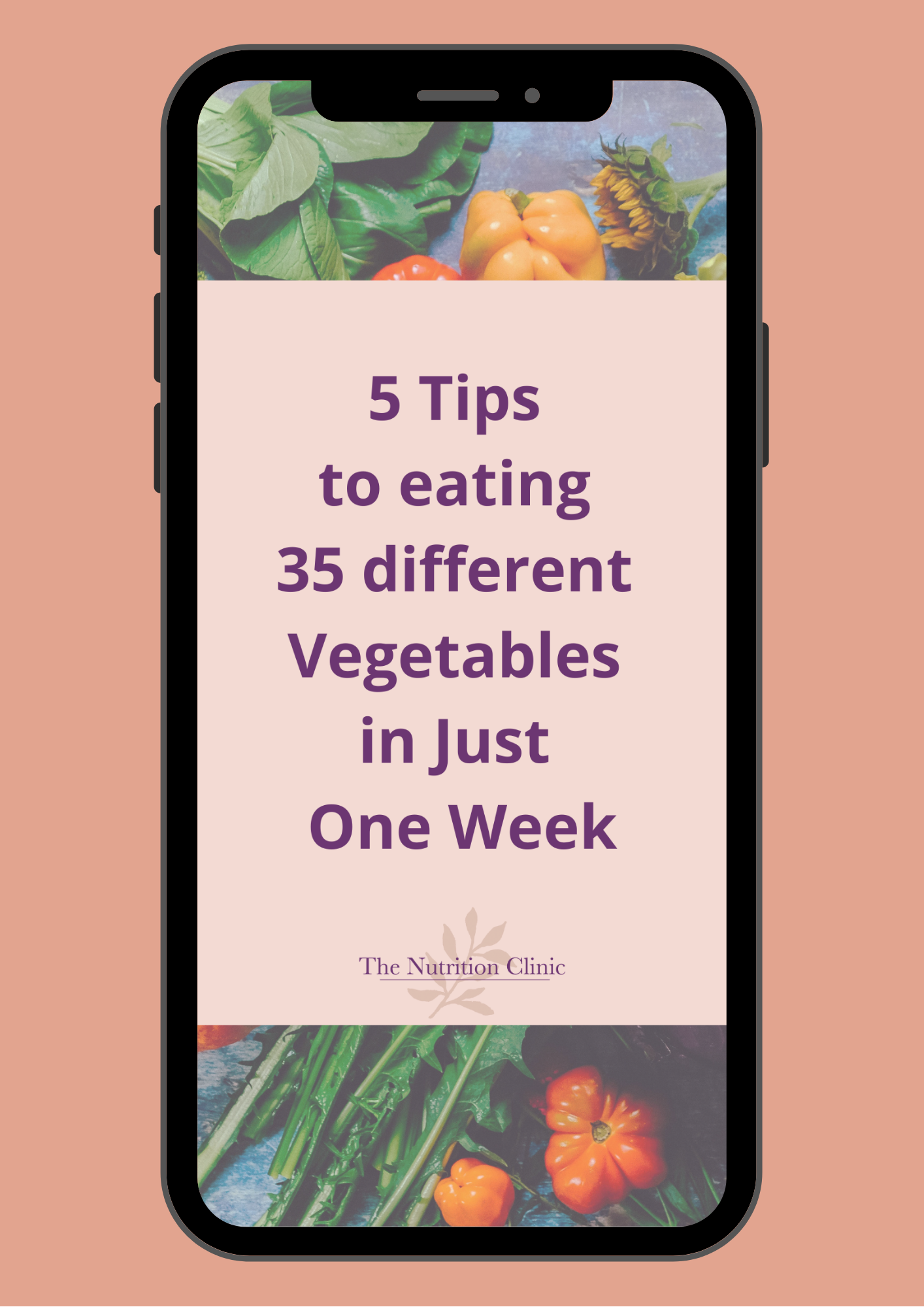Are you struggling to sleep at night? Is your bloating getting you down? Is your anxiety increasing? Did you know that all these symptoms could be linked via your internal body clock? I previously explored the role that our natural body clock has to play in our health in this post. There is also a circadian clock in our intestinal cells and the microbiome, and so a disrupted circadian rhythm could be affecting your overall health in more ways than you’re aware of. But how do you reset your circadian rhythm?
To re-cap the human body follows an internal time-keeping system, which is known as the circadian clock. There are natural body clocks in all cells of the body. When these are working in sync everything goes well and the host (i.e. us) is healthy. However, when these clocks become out of sync, either due to lack of external cues such as poor sleep or diet, or internal cues such as illness, then that can have a negative knock-on effect within the body.
If you are disrupting your circadian rhythms by eating late at night, exposing yourself to blue light in the evening, and not getting optimal sleep it won’t matter what gut healing protocol you follow.
To really help your gut heal, you need to support the natural re-setting of your circadian rhythm.
Follow these 5 tips to reset your circadian rhythm daily. Your health and your gut health will thank you
1. Sunlight (daylight) first thing in the morning
The retina at the back of each of our eyes, is the primary source of communication with our nervous system. This is because the retina belongs to the cranial system and is the only piece that resides outside the brain. As a result they eyes are the primary system that can directly tell the nervous system what is happening outside it in real-time. When light lands on the retina at appropriate time of the day, it directly affects many biological processes such as appetite, energy, timing and depth of sleep.
When we allow sunlight to fall on the eye first thing in the morning, it acts on neurons at the back of the eye called intrinsically photosensitive cells. These cells are connected to your hypothalamus in the brain, which is where the master circadian clock lives. When it receives this signal, which started out as sunlight, it resets all the internal circadian clocks all over the body to the same time. This means that all the body’s clocks are working in sync.
When you wake up go out into the morning light for 10 minutes each day.
Please don’t stare at the sun as this will damage your eyes, just being out in the light is enough. Windows or sunglasses will diffract the light and so it won’t land on your retina, where we want it. Contact lenses and eyeglasses are Ok though.
If it is bright and sunny all you need is 10 minutes each day. If it is cloudy and overcast you will need longer, as it takes time for those photosensitive cells to absorb the light. So in this case stay out for 20 minutes. . On very overcast days this may need to be extended to 30-60 min.
If you wake up before the sun is out and you want to be awake, turn on artificial lights and then go outside once the sun rises.
2. Waking up and going to sleep at the same time each day
Keeping a regular sleep schedule will also help reset your circadian rhythm. By going to sleep and waking up at the same time every day, your body will learn to adjust to a regular rhythm. If your desired bedtime is much earlier than it is now, adjust towards it slowly (otherwise you may be left lying there awake!). Even if you are unable to fall asleep at your desired time, make sure to set an alarm and wake up at the set time anyway. Over time this will keep you on track.
3. Health promoting diet
While light exposure is the main cue that affect the master body clock in the brain, our intestinal and gut microbe circadian rhythms are mainly influenced by the timing of food intake and what it is we are eating. One study in which mice were fed a high-fat, high-carb diet loaded with polyunsaturated fats and processed sugars (designed to mimic the Standard American Diet) showed very disrupted intestinal and microbe circadian rhythms. These disrupted circadian rhythms resulted in impaired glucose control, higher cholesterol and increased obesity. However, diets that are low in processed sugars and polyunsaturated fats and rich in EPA, DHA, and antioxidants has been shown to normalize gut circadian rhythms.

Want help with finding the best food and lifestyle choices for you?
Book a Nourishing Power Hour session and we can work through them together
4. Time restricted eating
Circadian rhythms regulate when we feel hungry and how we eat. Erratic eating patterns, such as skipping meals and eating late at night, can also disrupt intestinal cell and gut microbe circadian rhythms.
However, temporarily restricting food intake, through time restricted easting has been shown to improve the gut circadian rhythm. Time restricted eating is when all your meals are eaten in a shorter time period such as 12, 10 or 8 hours (1). Research has found that this eating practice optimizes metabolism, and can correct problems associated with gut circadian disruption, such as insulin resistance. (1)
Eating non-stop all day or eating late at night has also been shown to disrupt the circadian rhythms of gut microbes and is associated with insulin resistance and weight gain.
5. Reduce Blue light at night
Blue light and artificial light exposure at night also disrupts circadian rhythms by sending signals to the master body clock in the brain that it is daytime (blue light promotes wakefulness, and is part of the spectrum of daylight). Research indicates that this has downstream effects on the health of your gut, as the blue light restricts the production on the melatonin. Melatonin, which is also needed to better sleep, also regulates the activities of the gut bacteria.
Avoid blue light from phones, computers / tablets and television for at least 2 hours before bed. If you do need to work at a computer or use your phone it may be worth investing in a pair of blue-light filtering glasses such as these.
Let me know what you think? Have these tips been useful? Do you think your gut health is keeping up awake at night?





0 Comments